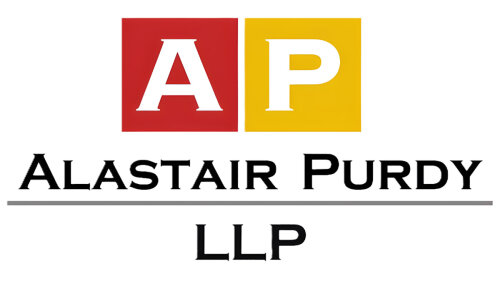Best Mortgage Lawyers in Galway
Share your needs with us, get contacted by law firms.
Free. Takes 2 min.
Free Guide to Hiring a Real Estate Lawyer
List of the best lawyers in Galway, Ireland
About Mortgage Law in Galway, Ireland
Mortgage law in Galway, Ireland, governs the legal framework surrounding the financing of property purchases through a loan secured by the property itself. This area of law is critical for both property buyers and lenders, ensuring the rights and obligations of each party are clearly defined and protected. In Ireland, mortgages are regulated under both local and national legislation, with particular nuances specific to the Galway area due to its unique property market dynamics. Understanding mortgage law is essential for anyone looking to buy property in Galway to ensure compliance with all legal requirements and avoid potential disputes.
Why You May Need a Lawyer
There are several situations where you may require legal guidance when dealing with mortgages in Galway, Ireland:
- Understanding Mortgage Terms: Legal advice can help clarify the terms of a mortgage agreement and identify any potential issues.
- Property Disputes: Disputes may arise over property boundaries, title ownership, or rights-of-way, necessitating legal intervention.
- Refinancing and Remortgaging: Changing your mortgage terms may require legal oversight to ensure it aligns with current laws and regulations.
- Enforcement of Mortgages: In situations where mortgage payments are missed, a lawyer can help negotiate terms or represent your interests in legal proceedings.
- Purchasing Property Safely: A lawyer can help ensure all legal procedures are followed, reducing the risk of issues later on.
Local Laws Overview
Several key aspects of local laws are particularly relevant to mortgage issues in Galway, Ireland:
- Property Registration: Ensuring that all property transactions are registered with the Property Registration Authority to guarantee legal ownership.
- Right of Redemption: Mortgagors have the right to redeem their properties on repayment of the loan prior to foreclosure.
- Land and Conveyancing Law Reform Act 2009: This act regulates the relationship between borrowers and lenders, including the process for repossession and sale of residential properties.
- Building Energy Rating (BER): Properties must have a valid BER certificate, impacting both valuation and mortgage approval.
- Local Planning Permissions: Compliance with local planning regulations and permissions is required for any property development.
Frequently Asked Questions
What is the process for applying for a mortgage in Galway?
The process typically involves assessing your financial situation, choosing a lender, getting approval in principle, and then formally applying. Legal advice can help navigate this process.
Are there different types of mortgages available in Ireland?
Yes, common types include fixed rate, variable rate, and tracker mortgages, each with distinct terms and conditions.
What are the legal requirements for a mortgage in Ireland?
Requirements include a sufficient deposit, proof of income, a good credit history, and the appropriate legal paperwork.
How does a fixed-rate mortgage differ from a variable rate?
A fixed-rate mortgage has a set interest rate for a specific period, while a variable rate can fluctuate based on market conditions.
What happens if I can’t keep up with my mortgage payments?
If you find yourself unable to make payments, it's important to contact your lender immediately to explore options such as refinancing or restructuring. Legal advice can help negotiate terms.
How is the value of a property assessed for a mortgage in Galway?
Lenders typically require a professional valuation to ensure the property’s value aligns with the loan amount being applied for.
Can non-residents apply for a mortgage in Galway?
Yes, non-residents can apply, though the terms might differ, and they may face stricter criteria and higher deposit requirements.
What fees are involved in securing a mortgage?
Common fees include arrangement fees, valuation fees, legal fees, and possible insurance requirements.
How long does mortgage approval take?
Approval times can vary but typically take a few weeks from application. Pre-approval can expedite this process.
What role does a solicitor play in the mortgage process?
A solicitor handles the conveyancing process, ensuring that all legal requirements are met, and facilitates the transfer of property ownership.
Additional Resources
For those seeking more information or legal assistance with mortgages in Galway, consider the following resources:
- Citizens Information - provides general information on buying a home and mortgages in Ireland.
- The Central Bank of Ireland - offers guidelines on lending standards and mortgage regulations.
- Property Registration Authority - ensures all legal documents regarding property ownership are correctly registered.
- The Law Society of Ireland - can help you find a qualified solicitor experienced in mortgage law.
- Galway City Council - for information on local planning permissions and community housing schemes.
Next Steps
If you need legal assistance with a mortgage in Galway, Ireland, consider the following steps:
- Research: Begin by gathering information about your specific mortgage needs and potential legal issues.
- Consultation: Schedule a consultation with a solicitor who specializes in mortgage law to discuss your case.
- Documentation: Collect all necessary documents such as property details, financial statements, and any correspondences related to your mortgage.
- Legal Representation: Based on the advice given, decide if you need ongoing legal representation to manage complex mortgage matters.
- Follow-Up: Maintain open communication with your legal advisor to stay informed on all proceedings and decisions.
Lawzana helps you find the best lawyers and law firms in Galway through a curated and pre-screened list of qualified legal professionals. Our platform offers rankings and detailed profiles of attorneys and law firms, allowing you to compare based on practice areas, including Mortgage, experience, and client feedback.
Each profile includes a description of the firm's areas of practice, client reviews, team members and partners, year of establishment, spoken languages, office locations, contact information, social media presence, and any published articles or resources. Most firms on our platform speak English and are experienced in both local and international legal matters.
Get a quote from top-rated law firms in Galway, Ireland — quickly, securely, and without unnecessary hassle.
Disclaimer:
The information provided on this page is for general informational purposes only and does not constitute legal advice. While we strive to ensure the accuracy and relevance of the content, legal information may change over time, and interpretations of the law can vary. You should always consult with a qualified legal professional for advice specific to your situation.
We disclaim all liability for actions taken or not taken based on the content of this page. If you believe any information is incorrect or outdated, please contact us, and we will review and update it where appropriate.

















